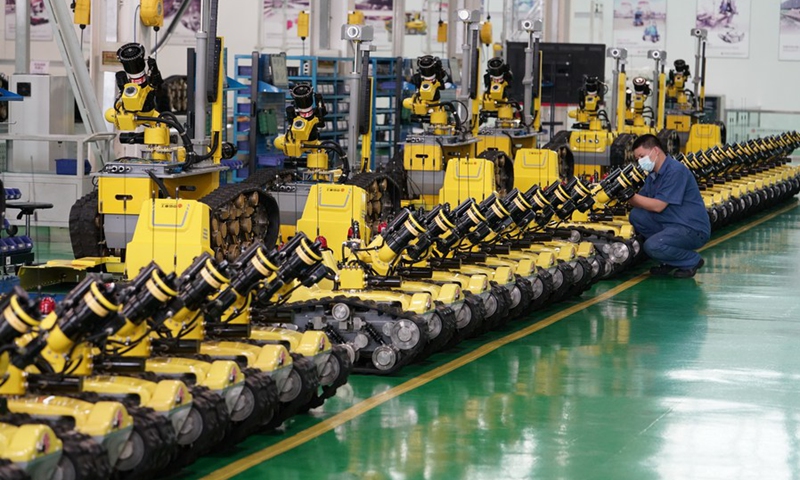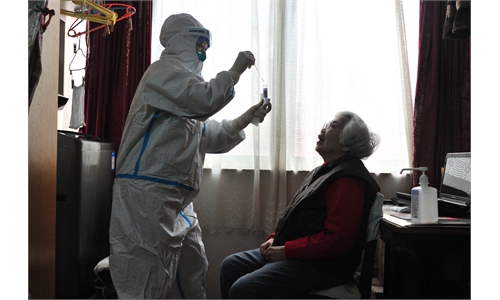Latest anti-epidemic measures in Tangshan not badly affecting domestic steel output: analysts

A worker debugs a special robot at a workshop in the Tangshan Hi-tech Industrial Development Zone in Tangshan, north China's Hebei Province, July 17, 2020.(Photo: Xinhua)
Tangshan, China's largest steel-producing city in North China's Hebei Province, imposed strict traffic controls along with other epidemic prevention measures on Tuesday after reporting new confirmed COVID-19 cases. Analysts said the measures will not significantly affect domestic steel output.
The local authorities in Tangshan implemented temporary closures and control management for the city for three days starting on Tuesday, just eight days after the city lifted restrictions from the previous tightened measures, according to media reports.
Tangshan reported one new confirmed case and 46 asymptomatic infections on Tuesday, the Health Commission of Hebei Province said.
Tangshan is a major production hub, and the strict epidemic prevention measures have affected local steel production and sales. A total of 29 steel producers were reportedly impacted, industry news website csteelnews.com reported.
An employee from a Tangshan-based steel company said on Wednesday that their products can't be shipped out as normal amid the current restrictions.
Analysts noted that local steel producers are still evaluating the impact and whether raw materials can be delivered to factories amid the fast implementation of the anti-epidemic measures.
Enterprises are still able to maintain normal production and they have enough raw materials, Wang Guoqing, research director at Beijing Lange Steel Information Research Center told the Global Times on Wednesday, adding that the long-term impact still needs further evaluation.
Bloomberg reported on Tuesday that the anti-epidemic measures in Tangshan raise fresh concerns about steel output, and that supply chains are being affected.
Wang stressed that the nation's steel output has not been seriously affected by anti-epidemic measures in various cities and regions, adding that the crude steel output of key large and medium-sized enterprises in the first half of April reached 2.224 million tons per day.
"If there had been no reduction measures in April, the national level of daily crude steel production would have been about 3 million tons," Wang said.
The National Development and Reform Commission, China's top economic planner, said on Tuesday that responsible authorities will continue carrying out the reduction work for domestic crude steel production in 2022.
Wang further noted that the curbs on crude steel production will help ease the pressure from weakened market demand amid the ongoing local outbreaks. This will help lower the cost of raw materials such as iron ore and coal, which will improve profitability for steel enterprises.

